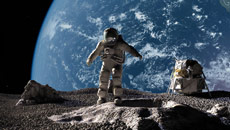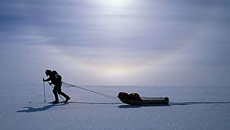We have long wondered at the complex navigation abilities of the bees who use the sun as a compass. But bees do memorise a mental map too, like humans, despite their much smaller brain size, new research reveals adding a whole new dimension to complex bee-navigation abilities that have long fascinated scientists.
"The surprise comes for many people that such a tiny little brain is able to form such a rich memory described as a cognitive map," said Randolf Menzel, a neurobiologist at Free University of Berlin.
The research demonstrates that bees can find their way back to their hives without relying solely on the sun.
Instead, they seem to use a "cognitive map" that is made up of memorised landscape snapshots that direct them home.
The cognitive map used by mammals is thought to originate in the brain’s hippocampus.
Humans employ such maps on a daily basis.
Even in a windowless office, many people can point towards their home.
"They can point to their home generally even though they cannot see it, even along a path through a wall that they have not travelled," said Fred Dyer, a behavioural biologist at Michigan State University in East Lansing.
The study argues that bees can do something similar, albeit on a much more rudimentary level.
The authors tested their theory by interfering with the bees' sun compass.
They shifted the bees’ internal biological clock by inducing sleep using a general anaesthetic.
Once the bees had woken up, Menzel and his colleagues tracked them along a path of several hundred metres from a release site to their hive using harmonic radar.
When the bees were released from a site with which they were unfamiliar, they initially travelled in the wrong direction, flying away from their hive instead of towards it.
With their internal clocks shifted, the bees still thought that it was morning -- so they went the wrong way based on their sense of where the sun should be.
"But then they redirect, ignoring the information from the sun. They refer to something else which is a cognitive map," Menzel said.
The research was published in the journal Proceedings of the National Academy of Sciences.





